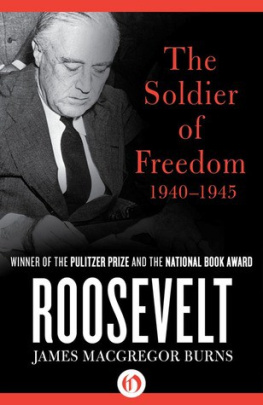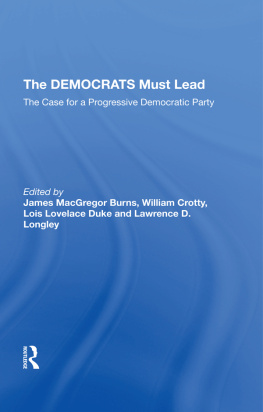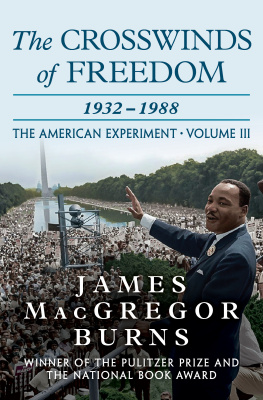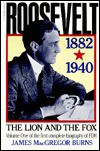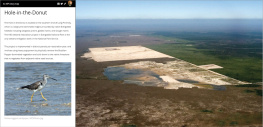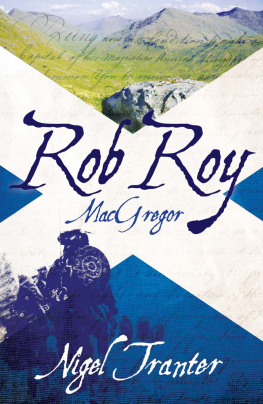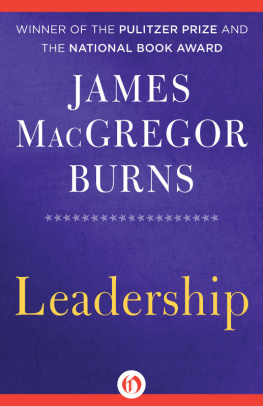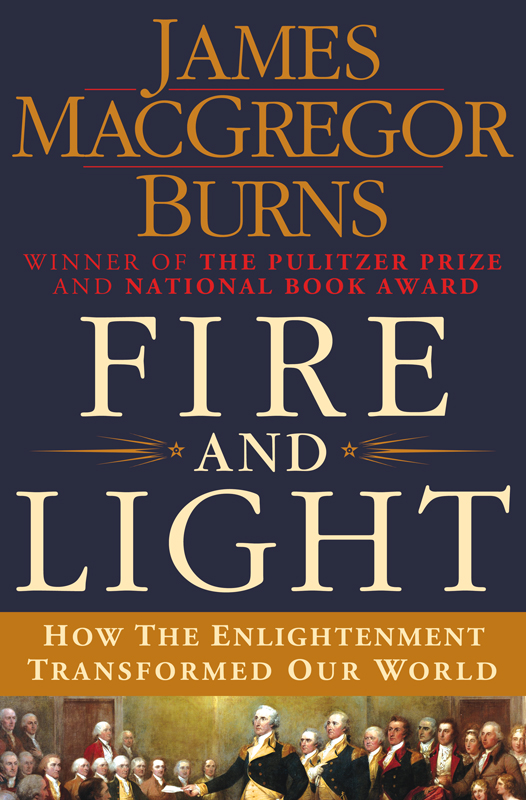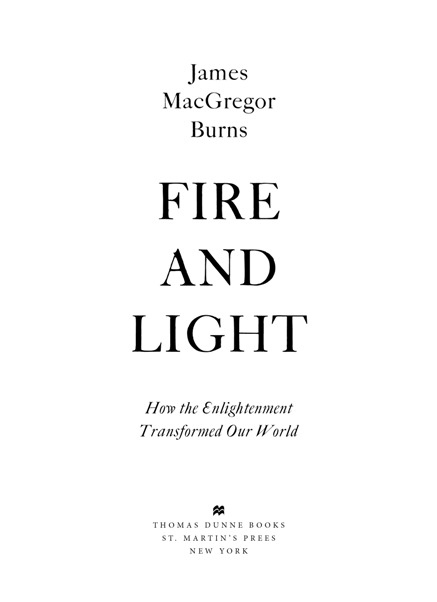James MacGregor Burns - Fire and Light: How the Enlightenment Transformed Our World
Here you can read online James MacGregor Burns - Fire and Light: How the Enlightenment Transformed Our World full text of the book (entire story) in english for free. Download pdf and epub, get meaning, cover and reviews about this ebook. year: 2013, publisher: Thomas Dunne Books, genre: Science. Description of the work, (preface) as well as reviews are available. Best literature library LitArk.com created for fans of good reading and offers a wide selection of genres:
Romance novel
Science fiction
Adventure
Detective
Science
History
Home and family
Prose
Art
Politics
Computer
Non-fiction
Religion
Business
Children
Humor
Choose a favorite category and find really read worthwhile books. Enjoy immersion in the world of imagination, feel the emotions of the characters or learn something new for yourself, make an fascinating discovery.

- Book:Fire and Light: How the Enlightenment Transformed Our World
- Author:
- Publisher:Thomas Dunne Books
- Genre:
- Year:2013
- Rating:3 / 5
- Favourites:Add to favourites
- Your mark:
Fire and Light: How the Enlightenment Transformed Our World: summary, description and annotation
We offer to read an annotation, description, summary or preface (depends on what the author of the book "Fire and Light: How the Enlightenment Transformed Our World" wrote himself). If you haven't found the necessary information about the book — write in the comments, we will try to find it.
With this profound and magnificent book, drawing on his deep reservoir of thought and expertise in the humanities, James MacGregor Burns takes us into the fires center. As a 21st-century philosopher, he brings to vivid life the incandescent personalities and ideas that embody the best in Western civilization and shows us how understanding them is essential for anyone who would seek to decipher the complex problems and potentialities of the world we will live in tomorrow. --Michael Beschloss, New York Times bestselling author of Presidential Courage: Brave Leaders and How They Changed America, 1789-1989
James MacGregor Burns is a national treasure, and Fire and Light is the elegiac capstone to a career devoted to understanding the seminal ideas that made America - for better and for worse - what it is. --Joseph J. Ellis, Pulitzer Prize and National Book Award winning author Revolutionary Summer
Pulitzer Prize-winning and bestselling historian James MacGregor Burns explores the most daring and transformational intellectual movement in history, the European and American Enlightenment
In this engaging, provocative history, James MacGregor Burns brilliantly illuminates the two-hundred-year conflagration of the Enlightenment, when audacious questions and astonishing ideas tore across Europe and the New World, transforming thought, overturning governments, and inspiring visionary political experiments. Fire and Light brings to vivid life the galaxy of revolutionary leaders of thought and action who, armed with a new sense of human possibility, driven by a hunger for change, created the modern world. Burns discovers the origins of a distinctive American Enlightenment in men like the Founding Fathers Benjamin Franklin, John Adams, Thomas Jefferson, and James Madison, and their early encounters with incendiary European ideas about liberty and equality. It was these thinker-activists who framed the United States as a grand and continuing experiment in Enlightenment principles.
Today the same questions Enlightenment thinkers grappled with have taken on new urgency around the world: in the turmoil of the Arab Spring, in the former Soviet Union, and China, as well as in the United States itself. What should a nation be? What should citizens expect from their government? Who should lead and how can leadership be made both effective and accountable? What is happiness, and what can the state contribute to it? Burnss exploration of the ideals and arguments that formed the bedrock of our modern world shines a new light on these ever-important questions.
James MacGregor Burns: author's other books
Who wrote Fire and Light: How the Enlightenment Transformed Our World? Find out the surname, the name of the author of the book and a list of all author's works by series.

